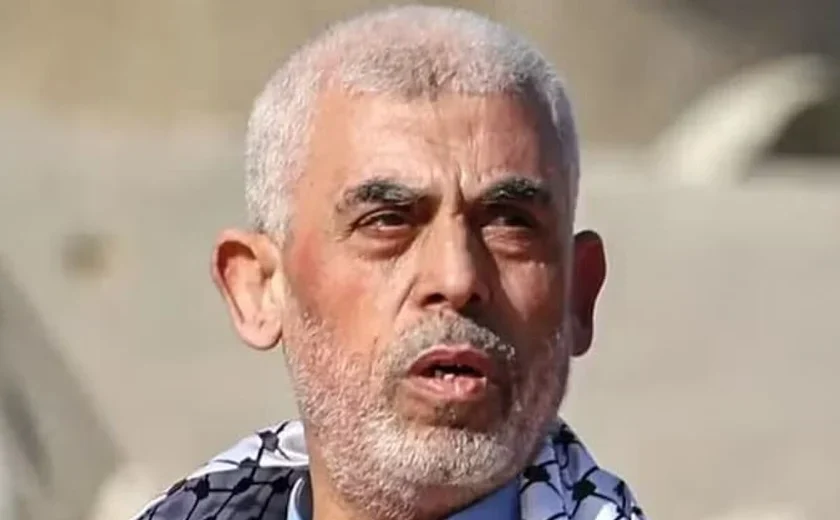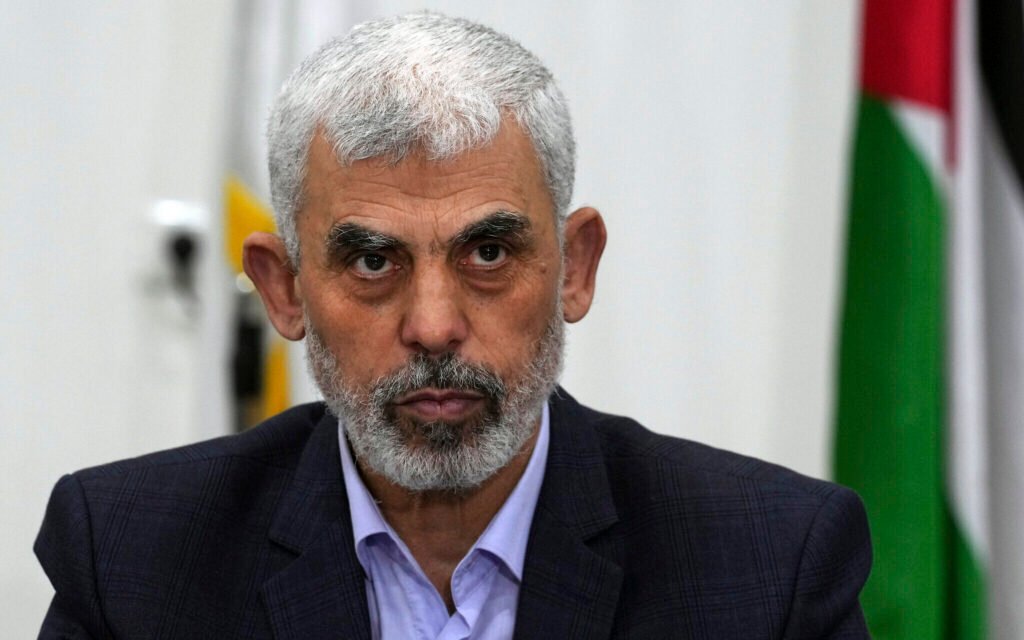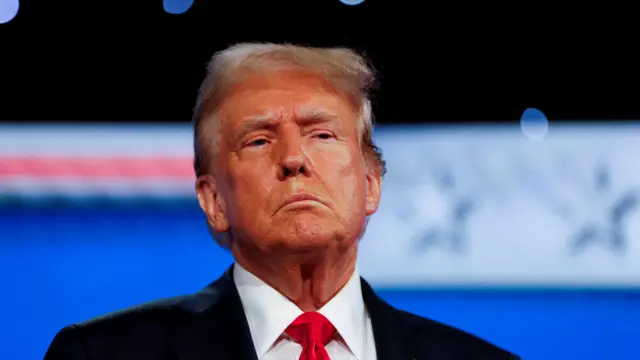Introduction
Yahya Sinwar stands as a pivotal figure in the ongoing dynamics of the Israeli-Palestinian conflict, particularly in his role as the leader of Hamas. Since his ascent to leadership in 2017, Sinwar has exerted considerable influence over the militant organization’s strategies and policies, shaping both its internal directives and external interactions. His rise is emblematic of a broader landscape within Palestinian politics, marked by the intersection of militant resistance and political maneuvering.
Sinwar’s leadership comes at a time when Hamas is navigating complex geopolitical realities, including fluctuating support within Gaza and changes in regional alliances. As a former prisoner who served time in Israeli jails, his experiences have contributed to his reputation among Hamas supporters, while simultaneously drawing scrutiny from critics. He embodies a leadership style that prioritizes a strong resistance against Israeli actions, maintaining a hardline stance that resonates with many Palestinians seeking results in a protracted struggle for statehood and dignity.
His policies have often been at the forefront of Hamas’s approach to conflict and negotiations with both Israel and rival Palestinian factions. Sinwar’s leadership strategies reflect a commitment to armed resistance, while also considering the socio-economic challenges faced by Palestinians in Gaza. Understanding Yahya Sinwar’s role and influence is crucial for comprehending the complexities of the region’s ongoing conflict, as his decisions not only affect Hamas and the Palestinian population but also have significant implications for Israeli security and regional stability. (Brookings Institution: The Israeli-Palestinian Conflict)
In the context of the Israeli-Palestinian conflict, Sinwar’s leadership cannot be ignored. Grasping the nuances of his policies and their ripple effects across various spheres is essential for anyone seeking to navigate the intricacies of this enduring struggle. (Council on Foreign Relations: Hamas and the Palestinian Authority)

Background
Yahya Sinwar was born in 1962 in Khan Younis, a city in the southern Gaza Strip. Growing up in an environment marked by the socio-political turmoil of the region, Sinwar was profoundly influenced by the pervasive struggles of the Palestinian people. His formative years were shaped by the impact of the Israeli-Palestinian conflict, which is a backdrop to many narratives within Palestinian society. Witnessing the daily adversities faced by his community sparked an early interest in political activism.
Sinwar’s involvement with Islamic movements can be traced back to his adolescence, as he joined the Muslim Brotherhood during his schooling period. This connection would later pave the way for his affiliation with Hamas, which emerged in the late 1980s as an offshoot of the Brotherhood. During his youth, Sinwar’s understanding of resistance and social justice evolved, aligning with the foundational ideologies of Hamas, which stress both military engagement and social welfare.
In 1982, Sinwar was arrested by Israeli authorities for his activism, leading to several years of imprisonment. This experience only deepened his commitment to the Hamas cause, where he began to refine his military and political strategies. Upon his release in 1985, Sinwar quickly ascended through the ranks of Hamas, demonstrating an adept ability to navigate both its military wing, the Izz ad-Din al-Qassam Brigades, and its political structures. His leadership style, characterized by a formidable blend of pragmatism and militancy, has allowed him to maintain support within various factions of the organization. This dual emphasis on military strategy and political maneuvering has significantly shaped Hamas’s operations and its ongoing relationships within the Palestinian territories.
Leadership
Yahya Sinwar’s ascent to the leadership of Hamas took a significant turn when he was elected to the politburo in 2017. This election marked a pivotal moment in the organization, solidifying his role as the de facto leader. Sinwar’s journey within Hamas has been characterized by a strong commitment to the principles of armed resistance, which has significantly influenced the group’s strategic decisions, particularly regarding military confrontations with Israel.
Under Sinwar’s leadership, Hamas has adopted a more assertive stance in its confrontations, emphasizing military capabilities and operational planning. He has effectively transformed the group’s military wing, the Izz ad-Din al-Qassam Brigades, into a formidable force, strategically deploying its resources to enhance its deterrent posture against Israel. Sinwar’s military strategies often involve a combination of conventional warfare tactics alongside asymmetric strategies, allowing Hamas to adapt to the evolving conflicts.
Furthermore, Sinwar’s leadership style reflects a profound commitment to maintaining a robust defense against perceived threats. He has been instrumental in the development of new military technologies and tactics, ensuring that Hamas remains a key player in the regional power dynamics. This approach has not only bolstered Hamas’s position in the Gaza Strip but has also resonated with its supporters, who view his leadership as a symbol of resistance against oppression.
Moreover, Sinwar has cultivated relationships with regional allies and sympathetic factions, thereby extending Hamas’s influence beyond its borders. His leadership has been marked by attempts to consolidate power within the organization while navigating the complex political landscape of the Middle East. Overall, Yahya Sinwar’s election to the Hamas politburo in 2017 has been integral to the organization’s military and political strategies, reinforcing its commitment to armed resistance and shaping the future of Palestinian resistance efforts.
Policies and Impact
Yahya Sinwar, as the leader of Hamas, has played a significant role in shaping the organization’s policies toward the Israeli-Palestinian conflict. His leadership style is often characterized by a hardline approach, which has direct implications for peace negotiations and the broader regional dynamics. Sinwar views armed resistance as a legitimate means to achieve Palestinian rights, promoting a narrative that emphasizes resistance over dialogue. This stance stands in stark contrast to approaches taken by other political factions within the Palestinian territories, often complicating the peace process with Israel.
Under Sinwar’s leadership, Hamas has been less inclined to engage in negotiations that may compromise its core principles. He has consistently rejected peace initiatives that do not align with Hamas’s political objectives, including the recognition of Israel. This has significant ramifications for the peace process, as it narrows the avenues for diplomacy and reinforces divisions among Palestinian factions. The lack of dialogue has perpetuated a cycle of violence, exacerbating tensions and undermining prospects for a sustainable resolution to the conflict.
Moreover, Sinwar’s policies have affected regional politics by influencing the behavior of other geopolitical players, including Iran and Egypt. His ability to rally support from allies, such as Iran, has strengthened Hamas’s position in the region, leading to greater military capabilities. Conversely, his hardline policies may have contributed to the hesitancy of some Arab states to fully normalize relations with Israel, as they navigate the delicate balance between supporting Palestinian rights and pursuing their diplomatic interests.
Overall, Yahya Sinwar’s leadership and policy decisions continue to shape the dynamics of the Israeli-Palestinian conflict. His focus on armed resistance and rejection of compromise has led to increased tensions, impacting not only Palestine and Israel but also the broader geopolitical landscape of the Middle East.
Recent Developments
The recent political landscape surrounding Yahya Sinwar, the prominent leader of Hamas, has shifted significantly leading up to his reported death. This development has generated a wave of reactions from various international leaders, drawing attention to the implications it holds for the Palestinian territories, Israel, and broader geopolitical dynamics. Sinwar, known for his militant stance and leadership role since 2017, was a key figure in orchestrating Hamas’s strategies against Israeli operations, often leading to increased tensions in the region.
Following the announcement of Sinwar’s death, significant reactions ensued from global political figures. Former U.S. President Donald Trump characterized the event as a pivotal moment, asserting that it might lead to a decrease in violence emanating from Gaza. He emphasized the necessity for Israel to remain vigilant, suggesting that Hamas’s operational capabilities could still pose a threat despite the loss of its leader. Conversely, current U.S. President Joe Biden took a more cautious approach, acknowledging the potential for both progress and challenges ahead. Biden remarked on the urgency for diplomatic efforts to stabilize the situation and prevent a power vacuum that could be exploited by extremist factions within the region.
The implications of Sinwar’s death could resonate throughout Hamas, as the leadership structure may experience challenges in maintaining cohesiveness and direction amidst internal power struggles. This event might also alter the dynamics of Palestinian politics, potentially influencing the strategies of rival factions like Fatah. The overall geopolitical landscape may be impacted as regional powers, always keen to exploit shifts in leadership, reassess their positions and alliances following this significant loss. As political leaders monitor the situation closely, the future of Hamas and its role in the Israeli-Palestinian conflict will undoubtedly depend on how these developments unfold in the coming months.
Reactions from Around the World
The leadership of Yahya Sinwar, as the head of Hamas, has elicited diverse reactions from international actors, reflecting a spectrum of perspectives that underscore the complexities of the Israeli-Palestinian conflict. Sinwar’s robust stance against Israel and his emphasis on armed resistance have garnered admiration from certain groups while provoking condemnation from others. Countries in the Middle East, particularly those sympathetic to the Palestinian cause, have generally supported Sinwar’s leadership, viewing him as a symbol of resistance against perceived oppression. Groups such as Hezbollah have expressed solidarity with Hamas, highlighting what they frame as a united front in the fight against Israeli policies.
Conversely, Western nations, especially the United States and members of the European Union, have reacted with alarm to Sinwar’s role. They characterize his leadership as a barrier to peace efforts, accusing Hamas of perpetuating violence and impeding negotiations aimed at a two-state solution. The designation of Hamas as a terrorist organization by these nations further complicates Sinwar’s international legitimacy, causing a rift in dialogues concerning regional stability. The ramifications of his policies extend beyond immediate conflicts, affecting global perceptions of Hamas and shaping relationships with various governments.
The reactions intensified following significant events such as military confrontations or escalations involving Hamas, with Sinwar often being at the center of discussions. His statement regarding the continuation of armed resistance has been the subject of scrutiny, leading to broader debates about the efficacy of diplomatic engagement versus military solutions in the region. As the international discourse on Middle Eastern politics evolves, so too does the perception of Sinwar, whose leadership continues to be a focal point for varying ideological interpretations. This duality of reactions highlights the intricate dynamics at play in international relations, especially as they pertain to the continuing struggle between Israel and Hamas.
Hamas’s Future Without Sinwar
Yahya Sinwar’s leadership of Hamas has undoubtedly shaped the organization, but speculating on its future without him entails analyzing potential successors, possible shifts in policy direction, and the broader implications for Hamas’s standing within Palestinian society. As Sinwar navigates an increasingly complex political landscape, it is crucial to consider how leadership transitions may impact the organization’s ideology and strategies.
Potential successors to Yahya Sinwar may have varying perspectives on governance, resistance, and negotiation with Israel. Figures such as Saleh al-Arouri and Khalil al-Hayya are often mentioned as possible candidates, each bringing their own political priorities and leadership styles. This succession may lead to policy adjustments that could either maintain the course set by Sinwar or signal a departure towards a more moderate approach, particularly in terms of engaging with different political factions within Palestine and abroad.
The dynamics within Hamas are also influenced by external pressures, notably the ongoing crises in Gaza, socio-economic challenges, and shifting regional alliances. The difficulty of securing sustained financial and political support may prompt a reevaluation of previous hardline stances. Consequently, the organization might adapt its strategies to ensure relevance and resilience in a rapidly changing environment. For instance, an emphasis on governance issues and humanitarian assistance may become more prominent to address the needs of the Palestinian populace.
As Hamas navigates these changes, its adaptation will significantly impact its standing within Palestinian society and the broader resistance movements. A leadership that prioritizes unity and collaboration among various factions could foster a more cohesive Palestinian front. Conversely, internal conflicts and ideological divides may weaken its influence, risking marginalization in the eyes of a population seeking effective governance and representation.
In examining the future of Hamas without Yahya Sinwar, it is clear that the organization faces critical decisions that will shape its trajectory in an evolving political landscape. These shifts will not only affect Hamas’s internal structure but also determine its role and significance within Palestinian society.
Legacy of Yahya Sinwar
Yahya Sinwar, as a prominent leader of Hamas, represents a complex figure whose legacy is intertwined with the broader narrative of the Israeli-Palestinian conflict. His rise to leadership illustrates not only the internal dynamics within Hamas but also the evolving landscape of Palestinian resistance and politics. Sinwar’s tenure has been characterized by both significant achievements and controversial decisions, emphasizing the duality of his influence.
One of Sinwar’s notable achievements has been his ability to consolidate power within Hamas, ensuring the organization’s continuing relevance in Palestinian politics. Under his leadership, Hamas has maintained an armed resistance against Israel while also navigating the precarious terrain of Palestinian unity, often striving to position itself as a legitimate representative of the Palestinian cause. His tactical decisions during various rounds of conflict with Israel have garnered both support and criticism. Supporters view him as a steadfast defender of Palestinian rights, while critics argue that his hardline stance has perpetuated cycles of violence without leading to meaningful progress toward peace.
Moreover, Sinwar’s commitment to social programs in Gaza, aimed at improving the living conditions of Palestinians, has further complicated his legacy. While these initiatives have attracted local support, they have also drawn scrutiny regarding the allocation of resources amidst ongoing humanitarian crises. In this regard, his leadership can be seen as a double-edged sword, providing immediate relief to some while exacerbating tensions with others who prioritize political solutions over armed struggle.
As Sinwar’s legacy continues to evolve, it is essential to recognize that he will be remembered differently by various factions. Supporters may herald him as a resilient leader who epitomizes the struggle for Palestinian autonomy, while detractors may criticize him for inflexibility and confrontation. Understanding this multifaceted legacy is vital for comprehending Hamas’s future direction and its impact on the Israeli-Palestinian conflict.
Conclusion
Yahya Sinwar emerged as a pivotal figure within Hamas, notably influencing its strategic direction and internal dynamics. Born in 1962 in Khan Younis, he became increasingly vital to the organization’s operations, moving from a role in grassroots activism to leading Hamas in Gaza. His leadership tenure was marked by a dual approach: engaging in military confrontations with Israel while simultaneously navigating the complex political landscape of Palestinian governance. Sinwar’s background as a former prisoner of Israel and his strong ties to Hamas’s military wing fortified his reputation within the group and among its supporters.
Under Sinwar, Hamas sought to balance military capabilities with political aspirations, positioning itself as a key player in Palestinian identity and resistance. His strategic vision included a focus on fostering alliances with other regional entities, while advocating for a unified Palestinian front against perceived adversities. This multifaceted leadership style allowed Hamas to maintain a degree of popular support, even amid criticism regarding its strategies and governance efficiencies.
As we consider the legacy of Yahya Sinwar, it becomes essential to reflect on the implications of his leadership for Hamas’s future trajectory. With a potential shift in leadership roles and strategies, the organization faces critical decisions that will shape not only its operational effectiveness but also its relevance on the Palestinian political scene. What do you think will be the future of Hamas following Sinwar’s passing? Will the organization continue on its current path, or will it adapt in ways that significantly alter its foundational principles? Engaging in this discussion can provide valuable insights into the intricate dynamics of Middle Eastern politics and the ongoing struggles for Palestinian representation and autonomy.

